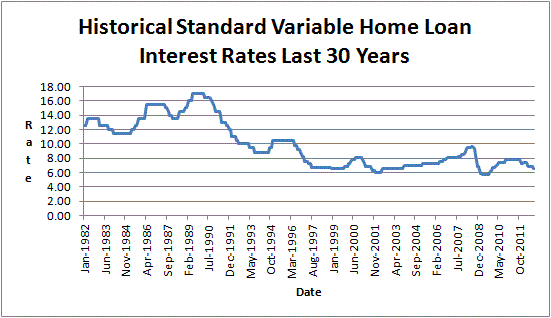JuddsABlue
Norm Smith Medallist
Recent home buyer on a 30 year standard variable loan
I'm just toying around on excel creating different payment forcasts over my loan and how it effects how much interest I pay etc etc. Just developing an understanding of my loan etc and how it will develop over time
So anyway, I have one sheet that goes through various interest rate rises and cuts etc. Its all rises actually, but I'm not really sure what a realistic interest rate rise is.
Over the next 10, 20 and 30 years, how high could rates potentially rise and fall? Would we see a sudden spike where they shoot up a few full percent, or will it be much more drawn out etc?
I have room for lots of scenarios, just trying to get an understanding of how quickly and high rates could rise in the real world over such a long period of time
I'm just toying around on excel creating different payment forcasts over my loan and how it effects how much interest I pay etc etc. Just developing an understanding of my loan etc and how it will develop over time
So anyway, I have one sheet that goes through various interest rate rises and cuts etc. Its all rises actually, but I'm not really sure what a realistic interest rate rise is.
Over the next 10, 20 and 30 years, how high could rates potentially rise and fall? Would we see a sudden spike where they shoot up a few full percent, or will it be much more drawn out etc?
I have room for lots of scenarios, just trying to get an understanding of how quickly and high rates could rise in the real world over such a long period of time





